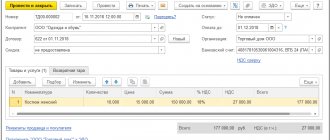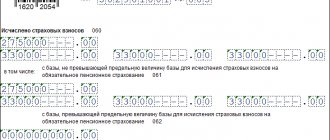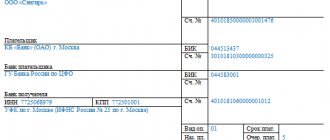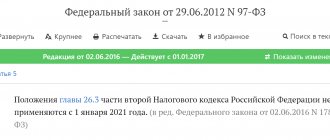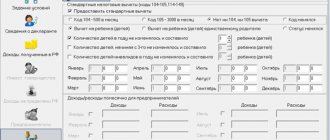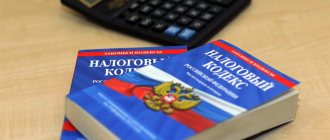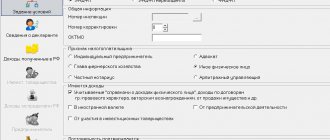What does the FSS check?
There are several main points that exist in the activities of almost any company that may be of interest to the Social Insurance Fund:
- Calculation and payment of contributions (correctness of calculation, whether payment is timely);
- The procedure for spending money that the policyholder has accrued for insured events such as maternity leave, sick leave or parental leave;
- Vouchers;
- The procedure for spending money transferred when an employee receives an injury.
Thus, inspectors from the Social Insurance Fund ensure that the transferred insurance payments are justified, and that the contributions are calculated correctly and transferred on time.
For additional control of reports sent to the FSS, companies can check them using a special FSS check. It checks whether the employer has filled out the calculation correctly, determined the base, as well as the amount of accruals and payments. This check is carried out based on control ratios and is performed free of charge.
Experienced way
This year there will not be many on-site inspections, because the inspection period is not long. However, everyone will not be able to avoid the “travelers”. Moreover, many payers are afraid that this will be a new procedure. Companies that have gone through the thorns of an on-site inspection by funds have decided to share their experience.
To fall under the hot hand. Organizations are invited to interdepartmental commissions, where officials indicate that employers pay wages below the average level for types of economic activity. Employees of the departments are trying to bring organizations to the “clean water” and want not only to increase the salaries of employees, but also to “whiten” them; they also “advise” to submit updated calculations with an increase in the taxable base for contributions. However, due to the increase in the interest rate on insurance premiums, salaries have become even more grey. Officials, as a punishment for those who did not follow their recommendations, bickered and took their salaries into the shadows, can assign an on-site inspection “to show” one of the “particularly resistant”. So to speak, to fall under the hot hand.
Although in fact, in addition to all others, an organization that is already included in the inspection plan is called to the commission. That is, the officials invited her to the “carpet” only to intimidate others, so to speak, a psychological attack in action.
Special rules
The Pension Fund and the Social Insurance Fund are required to conduct scheduled on-site inspections only together. “Single” routine inspections are illegal. However, unscheduled on-site inspections can be carried out independently of each other (PFR letter dated March 4, 2011 No. TM-30-25/2106).
Documents for verification. During inspections, fund employees often request documents that do not serve as a basis for the calculation and payment (transfer) of insurance premiums, as well as documents confirming the correctness of calculation and timely payment (transfer) of insurance premiums (subclause 1, clause 1, article 29 of Law No. 212-FZ). The legislation does not contain an exhaustive list of documents that Pension Fund employees have the right to request during an inspection. Therefore, payers must know which documents are needed for verification and which are not. For example, a supply agreement with an LLC should not be of interest to funds, but they will be interested in civil contracts.
Attention
First of all, inspectors from funds are focused on the scale of the error, so errors in documents fade into the background, and the first priority is to identify schemes for minimizing insurance premiums.
Looking for evasion schemes. First of all, inspectors are focused on the scale of the error, so errors in documents fade into the background, and the first priority is to identify schemes for minimizing insurance premiums. Thus, inspectors will definitely look for salaries “in envelopes”. They will be able to learn about the facts of concealment of salaries from complaints of former dissatisfied employees, while the funds do not have the right to charge additional contributions based only on the words of employees. An organization that posts vacancies in the media indicating earnings other than those paid risks increasing the suspicions of inspectors about “gray” payments. Moreover, there are court decisions where this circumstance was considered as evidence of the payment of unofficial wages (resolution of the Federal Antimonopoly Service of the Ural District dated October 30, 2008 No. F09-12287/06-S2 in case No. A71-4961/06). Other indirect evidence of the payment of unofficial wages may include salary data from previous jobs. If the salary was previously predominantly higher, then this gives another reason to talk about unofficial payments. During some inspections, due to the negligence of the organization, the inspectors ended up with “black” salary payment slips with the signatures of employees. Such a document leaves little chance of proving the “whiteness” of the salary.
But this is not the only scheme that fund inspectors will be looking for. If the organization applies reduced rates, then during verification the funds will do everything to prove that you are obliged to transfer contributions at the general rate of 34 percent. Therefore, the payer should check in advance and prepare documents that confirm the grounds for applying the preferential tariff.
If an organization transfers funds to an individual entrepreneur, then controllers will try to prove that you deliberately removed employees from the staff and made them “simplified entrepreneurs” in order not to pay insurance premiums. The Fund will try to prove that the civil contract should in fact be an employment contract. If the relationship is recognized as an employment relationship, payments should be subject to contributions in accordance with the general procedure.
Additional request for documents. If it is necessary to obtain additional evidence in the process of reviewing the inspection materials (that is, before drawing up the decision to engage, but after delivering the act) to confirm the fact of violations of the legislation on insurance premiums or the absence thereof, the head (deputy head) of the control body has the right to make a decision on requesting the necessary documents (Clause 7, Article 39 of Law No. 212-FZ). It turns out that after drawing up a certificate - the end of the verification - funds may request additional documents. During on-site tax audits, inspectors do not have this right. They must request all necessary documents before issuing a certificate of completion of the inspection. And during the consideration of the audit materials against objections, organizations have the right to attach documents that would confirm their position; the tax authorities themselves at this stage cannot request additional documents to strengthen their position. As we see, the funds were given the “green light” and the legislation provides for a rule that gives the right to request documents after the end of the inspection, but before the decision to attract is made.
Special rules
Funds have the right to request documents in the process of reviewing the inspection materials, that is, before drawing up a decision to attract, but after completing the inspection and delivering the relevant certificate (Clause 7, Article 39 of Law No. 212-FZ). During on-site tax audits, inspectors do not have this right.
Inspection of premises. On-site inspection of insurance premiums is carried out on the territory of the payer. If it is not possible to provide premises for conducting an inspection, it can be carried out at the location of the control body (Article 35 of Law No. 212-FZ). The organization must allow inspectors into its territory upon presentation of their identification and a decision to order an inspection. If access of officials to the payer’s premises is obstructed, a corresponding act is drawn up. And on the basis of it, controllers have the right to conduct an audit using the available data using calculation methods. However, it is necessary to distinguish between the provision of premises for inspection and inspection of premises. Thus, funds are deprived of the right to inspect the payer’s premises. Although inspectors may insist on an inspection, they say, whether the organization is hiding illegal workers in the basement. You have the right to refuse to examine them, since the legislation on insurance premiums has not given these powers to fund employees. Even if they intimidate by drawing up an act to prevent officials from accessing the premises, know: this is an empty threat. You can provide them with one room for conducting an on-site inspection and not allow them into other areas of the organization. In addition to inspection, funds do not have the right to conduct an inventory or seize documents. Please note that during an on-site inspection, tax inspectors have the right to seize documents, inspect premises and conduct an inventory of property. At the same time, the provisions of the Tax Code cannot, by analogy, vest the bodies of the Pension Fund and the Social Insurance Fund with such rights, since Law No. 212-FZ is not included in the tax legislation, but is included in the legislation on insurance contributions.
What checks does the FSS conduct?
There are several types of FSS checks (Law No. 255-FZ):
- Desk - during such an audit, payments for insurance coverage are reconciled based on claims for compensation, or information from the tax office;
- Unscheduled on-site visit - carried out if social insurance has received a complaint from an insured person, suggesting that the insurance coverage was accrued incorrectly to him;
- Scheduled on-site audit - such an audit is carried out together with the tax office in order to determine the correctness of payments for insurance coverage;
- A check necessary to determine the correctness of the calculations, as well as the timeliness and completeness of payment of contributions due until 2021.
The main goal of all inspection activities is to monitor companies’ compliance with Russian legislation. A desk audit is carried out upon receipt of each report from the company. If, as a result of the “camera camera”, violations are identified or a decision is made, the FSS will send an inspection report to the person being inspected. If the camera meeting is successful, then no reports are sent to the companies.
Important! You can find out about upcoming scheduled inspections of the FSS on their official website for the regional office.
Instructions on how to do this on the Pension Fund website
To obtain the necessary information, you must register on the website pfrf.ru.
If a citizen has an account on the State Services website, then he automatically becomes registered on the Pension Fund website.
Then you should go to your personal account and perform the following algorithm of actions:
- Select the “Ministry of Health and Social Development” tab.
- Select the “Pension Fund” button.
- Select the section “Information on the status of personal accounts”.
What does the FSS check during an on-site inspection in 2021?
As noted above, an on-site inspection can be either scheduled or unscheduled. To check whether contribution payers comply with legal requirements, the Social Insurance Fund draws up a plan for the year. Reasons for scheduled inspections include requests for funds for payment of benefits, complaints from employees, as well as processes of liquidation and reorganization of the company.
Important! The main thing that interests inspectors from the Social Insurance Fund is how the transferred amounts are spent, the procedure for calculating and paying contributions in the case of sick leave or maternity benefits.
Reviewed periods
Typically, specialists and employees of the fund are given the right to check the expenditure of funds exclusively for the last three years of the enterprise’s economic activity.
For example, in the case where an on-site inspection of the FSS is expected in 2014, specialists will check the period from 2011 to 2013.
But it is worth considering that in the case where the reason for the inspection was the result of a desk audit, then the employees of the social insurance fund are given the right to properly check the current year’s report. This could be half a year, or nine months, as well as the first quarter.
We should also not forget the fact that the FSS is authorized to order a second audit, but in this case the period will be in the same way three calendar years.
A repeated audit can occur based on the reasons for the liquidation of the enterprise, or its reorganization, as well as according to the reason for the control by the body, which is an order of magnitude higher than the activity of the branch that conducted the audit. In such cases, an off-plan inspection may also be carried out.
Checking sick leave
Sick leave certificates are checked by FSS employees with special care, since they are the only confirmation that the employee needs to be paid benefits. The sheets are checked both during desk and on-site inspections. What exactly does the FSS check on sick leave:
- Does the sick leave form comply with State Standards and is it not a fake?
- Availability of the doctor's seal and signature on the sick leave (they must be clear and legible);
- Correct filling (all information about both the employee and the organization must be clearly filled out). If there are errors on the sick leave, they must be certified in the required manner.
Important! The FSS checks not only whether the employer filled out the sick leave correctly, but also how the medical institution filled it out. Errors in the employee's full name or employer's name are not allowed.
What documents will the FSS require during inspection?
The first thing that FSS employees check is the reports 4-FSS and 4a-FSS. The organization must store these reports for at least 5 years, since future benefits are calculated on the basis of previous periods.
In addition, the inspector may request other documents. Initially, documents are requested orally, and if they are not immediately provided, then a written request is sent, which the person being inspected is obliged to fulfill within 10 days. If suddenly the company being inspected does not meet the 10-day deadline, it has the right to ask for an extension. To do this, a letter is sent to the FSS indicating the request for an extension of the period, as well as the justification for its extension. In response, the FSS will send a decision in which the deadline may be extended or refuse to extend it.
Certain rules to follow
When communicating with FSS and Pension Fund inspectors, you must adhere to certain rules, consider these rules:
- Get ready psychologically, and remember just two things: 1. You are in ;
- You are a competent specialist who knows his business. This is important because some experienced inspectors are good psychologists; they will immediately see when a person is nervous or trying to deceive. Therefore, in order to be believed, you yourself must definitely believe that you are right.
- Create a comfortable environment for inspectors. It’s good if they are in a separate office: it’s calm for them and for you. You can put a kettle, tea, and something for tea in their office, show them where to pour water, etc. It’s better to squeeze out your employees, but definitely not the inspectors.
- Maintain a distance when communicating with inspectors. When offering tea or other amenities, do so politely, out of decency, and not out of a desire to bribe.
- Stand up for your opinion. If the inspectors point out errors to you, in their opinion, do not try to agree and do not try to explain everything right away. It’s better to say that you need time to think and prepare an answer. During this time, you will be able to collect the necessary arguments and evidence that you are right. Even if you understand that there is a violation, this is not a reason to be upset, but on the contrary, you need to get together and, firstly, understand what the threat is, and secondly, try to fix everything.
- Remember that no matter how the inspectors behave, you and them have different interests. Just be as diplomatic as possible and keep your ears open.
On-site inspection results
Based on the results of the on-site inspection, the FSS draws up a report. Initially, before the inspection report, on the last day of the inspection, the inspector from the Social Insurance Fund draws up a certificate indicating the subject of the inspection, as well as the timing of the inspection.
Important! The report on the results of the inspection is drawn up within 2 months after the issuance of such a certificate. After drawing up the report, it is transferred to the audited company within 5 days.
The act is signed by both the inspector from the Social Insurance Fund and a representative of the company being inspected. If the company does not agree with the contents of the act, then it can present its objections before signing it (Read also the article ⇒ Inventory of wage calculations in 2021 + postings).
How to recover arrears in contributions to compulsory pension, social and health insurance
How to pay insurance premiums to employers is stated in Article 431 of the Tax Code of the Russian Federation. The deadline to transfer insurance premiums is the 15th day of the month following the reporting month. If the organization has not paid or has not paid in full the amount of contributions, the tax inspector will collect the arrears. This is the rule of paragraph 3 of Article 431 of the Tax Code of the Russian Federation.
Insurance premiums are subject to tax audit rules. This means that the inspector will be able to assess additional contributions as a result of a desk or field tax audit.
After the tax inspector discovers the arrears, he will send the organization a demand for payment of contributions. Execute it within eight working days after you receive it (paragraph 4, paragraph 4, article 69 and paragraph 6, article 6.1 of the Tax Code of the Russian Federation). If you do not repay the arrears on time, the tax office will make a decision on collection.
To get a deferment or installment plan for contributions, use the same rules as for taxes.
Starting from 2021, tax inspectorates will collect arrears in contributions to compulsory pension, social and health insurance. This rule also applies to old debts: up to 2017. If the arrears were discovered by the Pension Fund of the Russian Federation or the Social Insurance Fund of Russia in December 2021, the tax inspectorate will collect it in 2017. This is stated in paragraph 2 of Article 4 of the Law of July 3, 2021 No. 243-FZ.
In order to collect arrears based on the results of audits for periods before 2017, the funds and the tax service have approved a procedure for information interaction. The Pension Fund of Russia and the Federal Tax Service of Russia send decisions based on the results of audits to the tax inspectorates in electronic form (and before the software starts working, in the form of certified copies on paper according to the register). Based on these decisions, the inspectorates will reflect the amount of arrears (penalties and fines) in the KRSB and issue a demand to the organization for payment. Collection of arrears under these decisions is controlled by the regional Federal Tax Service.
In 2021, transfer the arrears of contributions, penalties and fines to the KBK of the Federal Tax Service of Russia with code 182. It does not matter if the decision indicates the KBK of the fund. This is stated in paragraphs 5 and 5.1 of the letter of the Federal Tax Service of Russia, the Board of the Pension Fund of the Russian Federation, the Federal Social Insurance Fund of Russia dated January 26, 2021 No. BS-4-11/ [email protected] /NP-30-26/947/02-11-10/06 -308-P.
If an organization has been liquidated or expelled from the Unified State Register of Legal Entities, its debt for contributions, penalties and fines must be considered impossible to collect. If liquidation occurs before 2021, then extra-budgetary funds are required to do this: the Pension Fund of Russia and the Social Insurance Fund of Russia. This follows from paragraph 3 of Article 19 of the Law of July 3, 2021 No. 250-FZ.
The funds will recognize such debts as impossible to collect according to the rules that were in force until 2021. They are spelled out in Article 23 of Law No. 212-FZ of July 24, 2009 and Decree of the Government of the Russian Federation of October 17, 2009 No. 820 (letter of the Federal Tax Service of Russia dated February 20, 2021 No. BS-4-11/3055).
Employer's liability
Fines that can be imposed by the FSS are provided for in Law No. 125-FZ and the Code of Administrative Offenses of the Russian Federation. For delay in providing calculation of contributions, a fine will be charged in the amount of 5% of insurance premiums for the last three months in the billing period. In this case, both the maximum and minimum limits must be observed - respectively, no more than 30% of the specified amount, but not less than 1000 rubles.
Let's consider the administrative liability for the employer in case of violation of the requirements of the legislation of the Russian Federation regarding the provision of certain documents:
| Violation | Fine, rubles |
| For violation of the deadline for providing information to the Social Insurance Fund on opening/closing a bank account | 1000 – 2000 |
| For late submission of calculations for social insurance and occupational diseases | 300 – 500 |
| Refusal to provide or untimely provision of information requested during the inspection, as well as provision of information incompletely or with errors | 300 – 500 |
Who is at risk of being blacklisted?
The letter from the Pension Fund of Russia and the Social Insurance Fund contains the selection criteria by which the sample was selected for the audit in 2011. The regulatory authorities are guided by these criteria:
- inconsistencies between calculations according to forms RSV-1 in the Pension Fund and 4-FSS in the Social Insurance Fund;
- the company has expenses financed by the Federal Social Insurance Fund of the Russian Federation (for example, temporary disability benefits at the expense of the Social Insurance Fund);
- reporting was not provided on time;
- the organization made a payment to the employee that is not subject to insurance contributions, for example, material assistance in a significant amount;
- application of benefits for the payment of insurance premiums;
- arrears in contributions for more than two reporting periods in a row;
- the amount of accrued insurance premiums decreased compared to the previous reporting period, but the number of employees remained the same;
- repeated provision of adjustments;
- The tax office can report to the Pension Fund about participation in schemes to minimize the amount of insurance premiums if it suspects this.
Thus, if the insurance premium payer meets most of the criteria, then it is likely that the Pension Fund and the Social Insurance Fund will want to “visit” him.

